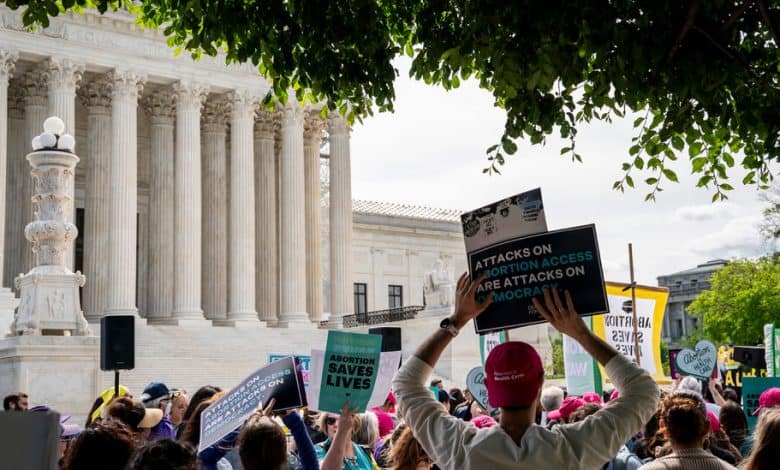Abortion Debate Shifts as Election Nears: ‘Now It’s About Pregnancy’

In the decades that Roe v. Wade was the law of the land, abortion rights groups tried to shore up support for it by declaring “Abortion Is Health Care.”
Only now, two years after the Supreme Court eliminated the constitutional right to abortion, and just six months before the presidential election, has the slogan taken on the force of reality.
The public conversation about abortion has grown into one about the complexities of pregnancy and reproduction, as the consequences of bans have played out in the news. The question is no longer just whether you can get an abortion, but also, Can you get one if pregnancy complications put you in septic shock? Can you find an obstetrician when so many are leaving states with bans? If you miscarry, will the hospital send you home to bleed? Can you and your partner do in vitro fertilization?
That shift helps explain why a record percentage of Americans are now declaring themselves single-issue voters on abortion rights — especially among Black voters, Democrats, women and those ages 18 to 29. Republican women are increasingly saying their party’s opposition to abortion is too extreme, and Democrats are running on the issue after years of running away from it.
“When the Dobbs case came down, I told my friends — somewhat but not entirely in jest — that America was about to be exposed to a lengthy seminar on obstetrics,” Elaine Kamarck, a fellow at the Brookings Institution, referring to the Supreme Court decision that overturned Roe v. Wade.
Abortion opponents say that stories about women facing medical complications are overblown and that women who truly need abortions for medical reasons have been able to get them under exceptions to the bans.
